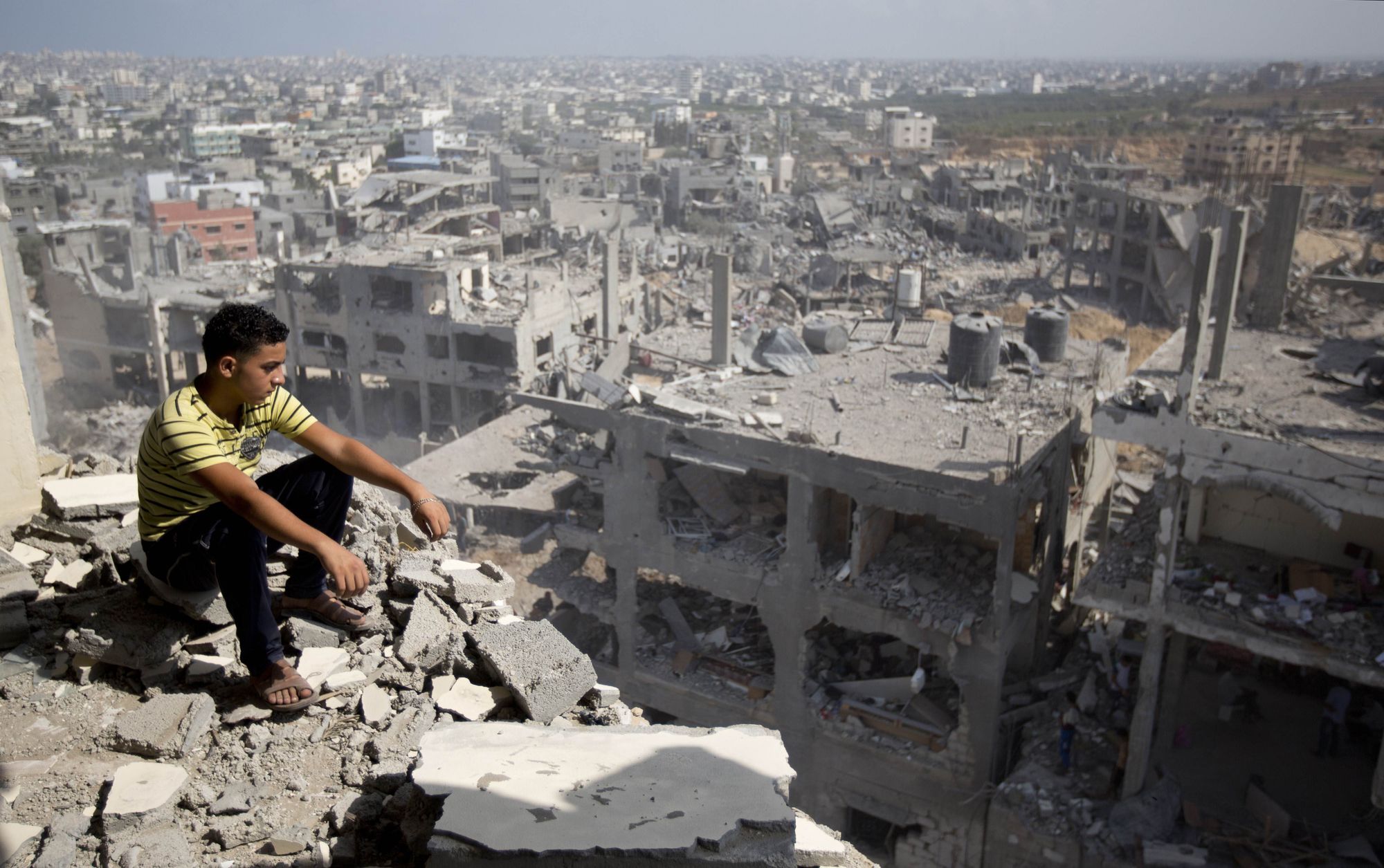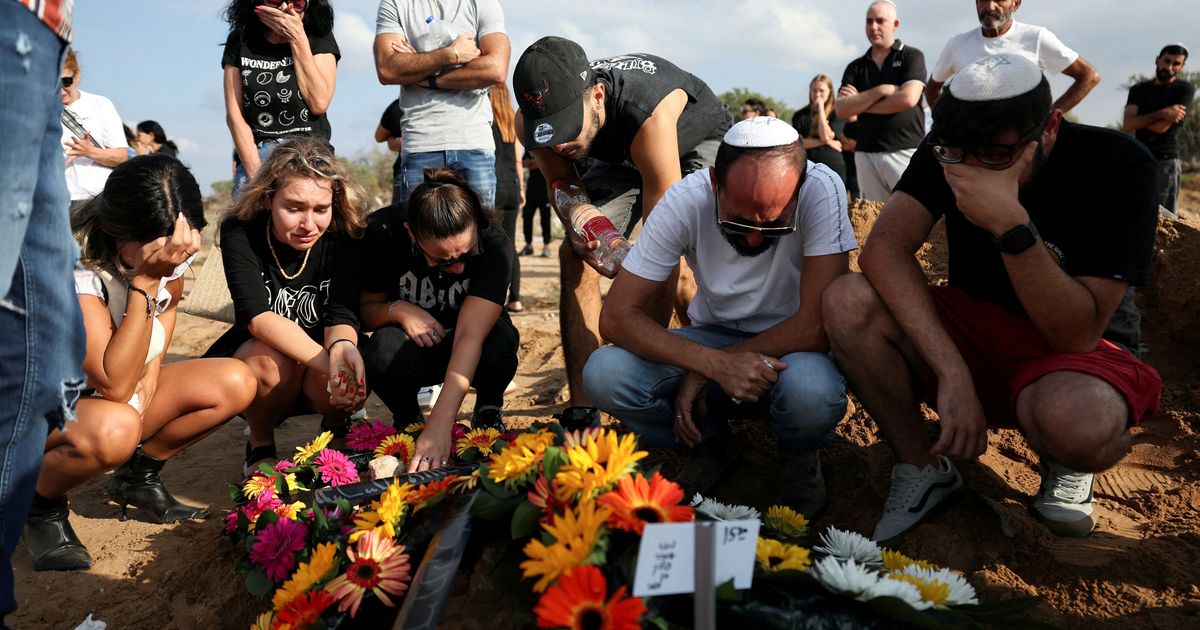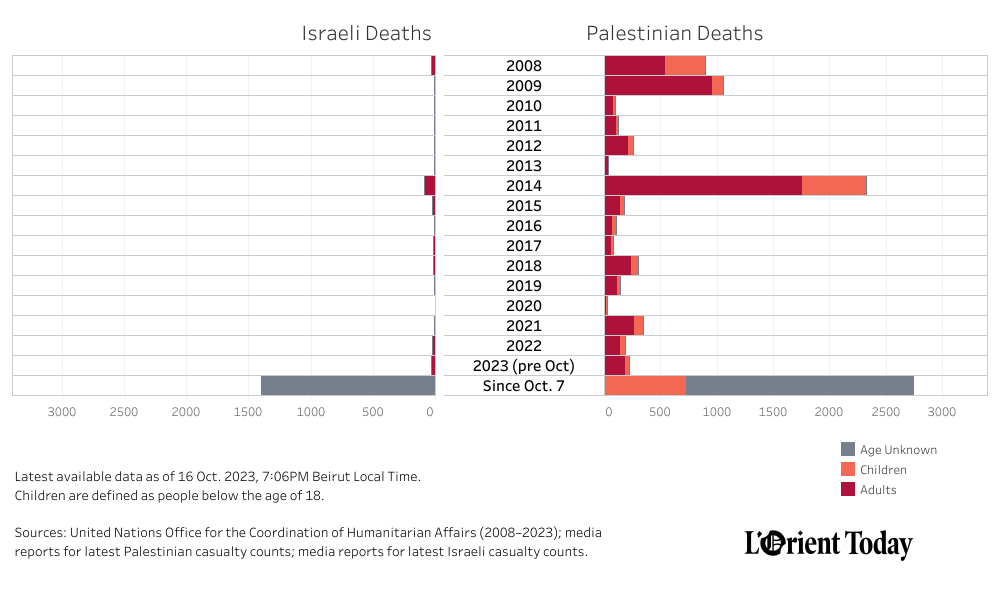Israel-Palestine has exploded once again. It started with an attack by Hamas against Israeli civilians on October 7, killing 1,400 people and taking more than 200 hostages. Which was followed by an even bloodier retaliation by Israel in the form of airstrikes on Gaza, which as I write has killed at least 3,700 people, almost half of whom are estimated to be children. A ground offensive is expected imminently, which could kill many more, and ignite a wider war.
I’m no expert on this conflict. I don’t want to add to the noise, because there’s a lot of it. The only thing needed right now is de-escalation and a ceasefire.
But observing the information war that sits atop the real one, I had a few notes, which I’ll share here in rough form.

Empathy first
In the wake of the massacre, many left-wing activists quickly attributed the attack to the ongoing occupation. From leftist groups across Europe to anti-Zionist Jewish organisations in the US, the consensus was clear: they viewed the attack as the latest episode in a prolonged conflict fundamentally rooted in Israeli apartheid and territorial control.
On its face, this is a valid argument; context is vital, and the Hamas attack didn’t come out of nowhere. I understand the drive of these organisations to make a forceful pronouncement, to get out an early salvo in a forthcoming information war. And social media dynamics forces us all into maximalist positions, where the urge to cede zero ground to our political opponents dominates.
But these statements often failed to include a simple fact: that Hamas committed a war crime. A wicked, gruesome act against civilians, including women, children, grandparents. These organisations did not condemn that crime from the outset, nor show support for the civilians killed in a meaningful way. They didn’t have to ‘stand with Israel’, or take a side against Hamas. They just needed to show some common humanity.

Setting aside ethical concerns, this approach was strategically flawed. The attack catalysed a surge of activism in leftist circles, marked by an uptick in donations, new memberships, and street protests. However, these leftist groups failed to tap into this momentum, and faced a backlash instead. In multiple activist circles I'm involved with, members quit in disgust over this refusal to condemn, and apparent downplaying of the mass murder of civilians. (Here’s one of many open letters on this topic that landed in my inbox.) This discord continues to ripple through left-wing communities even two weeks after the attack.
By adopting an uncompromising position, these groups alienated potential allies. There are individuals who might align politically with these organisations, but needed to hear a note of shared humanity in this brutal moment. Instead, the groups prioritised their political agenda. They undermined their own objectives.
The conclusion: In the immediate aftermath of an attack, denounce the aggressor’s actions1 and support the victims. And only then, move to your big-picture analysis and solutions.
If you want people to listen to you, that is.
To see clearly, close your eyes
Which brings me to the videos and images of the carnage in Israel-Palestine. There’s been a lot of talk about ‘bearing witness’, urging people not to ‘look away’. Just today, a photo of a Gazan boy’s last moments with his mother flashed on my timeline, followed by with footage of teenagers being slaughtered in the initial attack.2 It is simply heartbreaking.
I try to avoid looking at these images. I laid out my reasons here, related to the Ukraine war. But essentially I believe that diving into this stream of brutality, as it relates to an issue I'm trying in some small way to influence, will prevent me from thinking clearly.3
But in this, the latest round of the Israel-Palestine conflict, there’s another reason not to watch. Because again, context is vital. Look at this graph:

The imbalance is hard to miss. And even before the present war, 2023 was the deadliest year on record for child deaths, with one Palestinian child being killed per week as a result of the occupation.
Each death, on either side, is a family destroyed. There is scant video footage of these Palestinian deaths preceding October 23, and little to no outrage. They are mentioned in numbers, not names.
War has, grimly, become a spectator sport. If I don’t have the option of getting firsthand data from both sides, with context, then I can’t make good decisions about how to process and act on it. So I rely on others’ accounts. I think you should consider doing the same.
Separate real bigotry from constructive dissent
It’s also hard to engage in the Israel-Hamas information war without risking getting called a bigot – an antisemite, an Islamophobe, or worse – depending on what you’re saying.
Of course there are real bigots out there. But these labels are often misapplied to stifle debate and score political points. Such accusations require minimal proof, yet can tarnish reputations indelibly.
My take on this is as follows: In any social justice issue, two types of dissent exist. The first stems from bigotry and closed-mindedness. The second arises from people who may hold differing viewpoints but are open to dialogue and potential persuasion.
Calling everyone who opposes you a bigot is intellectually lazy. It demeans real bigotry.
But it also means you’ll never persuade, or learn from, the second group. And it increases the chance that members from the second group will end up in the first.
TL;DR: If we all agreed to stop accusing our political opponents of bigotry for a week, it could work wonders for the quality of our discourse.
To break through, go against the flow
Lastly, when people speak out against their apparent political interest, it resonates deeply. In a time when everyone seems to pick a side, these are the voices I notice. Examples here, here and here but there are many more.
I’m in awe of people who make such brave declarations in the current climate.
Take good care and stay safe,
Mehran
PS On the day after the massacre, I hit my meditation app for a daily sitting. It chooses the meditations randomly, but on that day it selected Metta, a particular type of meditation about empathy towards others. Even those you have complicated relationships with. It can’t have been a coincidence.
PPS from entrepreneur David Friedberg, on the Gaza conflict:
Hate and anger don't just emerge from nothing. They typically come from a place of deep hurt.
So the question is, how do you resolve the hurt?
Notes
1: Here’s a good example of a group doing this right (via Micah Sifry, whose piece on this is excellent).
2: I have my graphic content settings all switched on, but these images slip through. Twitter/X just can't get basic moderation right.
3: The information war around this conflict has also, unfortunately, set a new low for the propagation of internet lies. Yes, social media has shown its value once again at disseminating reports from the ground (I can't imagine a world without). And the charge of ‘disinformation’ is often weaponised in the battle for control of our discourse, between legacy actors and new entrants. Yet several viral images from the war in Gaza, videos, screenshots of tweets, have turned out to be false. My colleague Judith Meyer proposes an online verification system. I still think the only longterm answer is a massive, coordinated effort to promote digital literacy and critical thinking.



